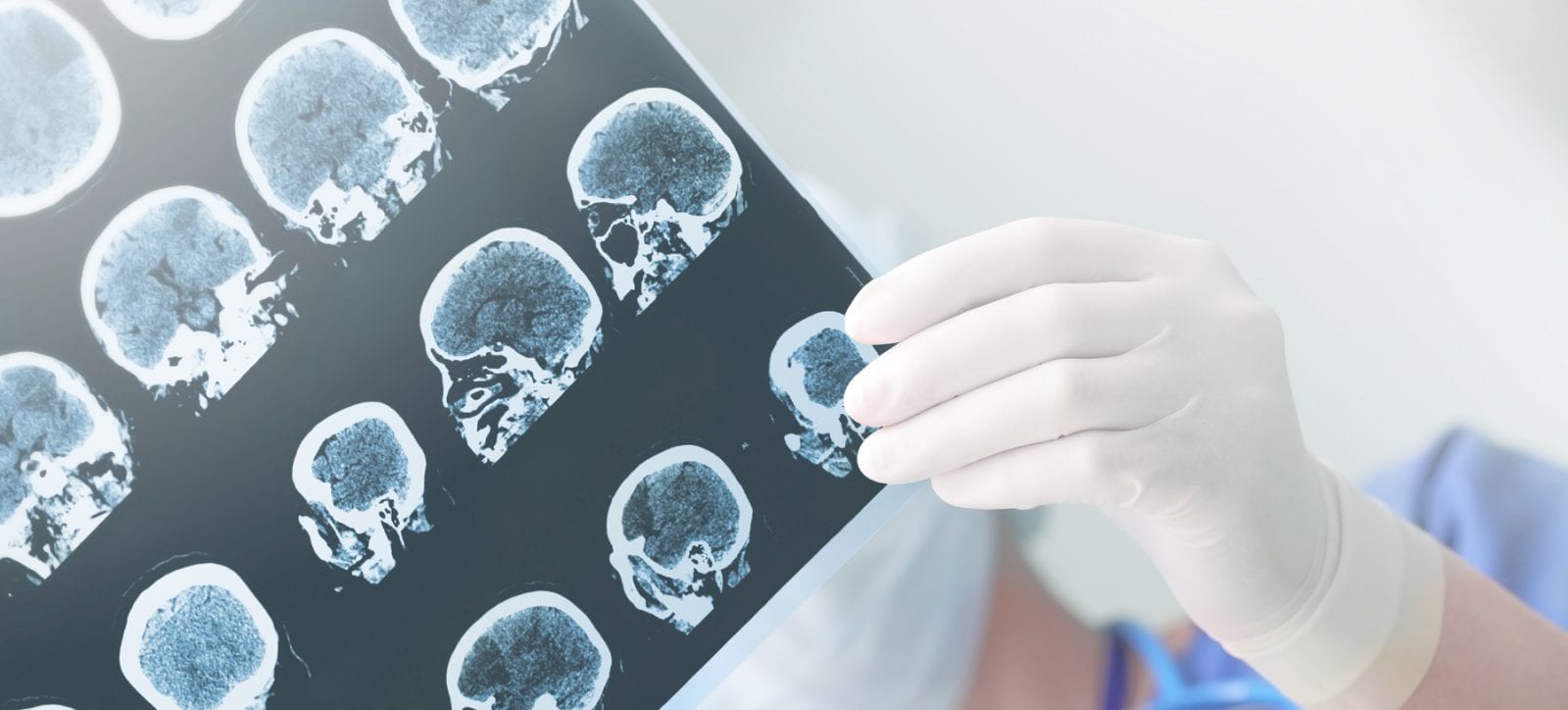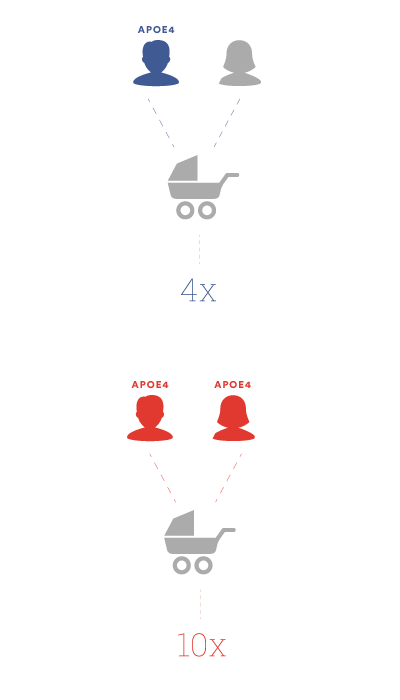Alzheimer’s disease has no known cure. The few available medications may help to lessen some symptoms of the disease and provide temporary relief or slow the progression of cognitive decline. Current treatments do not stop the progression or prevent the disease.
A complicating factor for researchers is that there is no known single cause of Alzheimer’s disease. However, many risk factors have been identified.
Genetics appears to play an important role in Alzheimer’s disease. Genes have been identified that increase the risk of-or protect against-the disease.

Alzheimer’s disease can run in families. Inheriting one copy of the APOE4 gene variant (which is found in about 20% of the population) may increase the risk of developing the disease by up to 4X. Inheriting two copies of APOE4 (one from each parent) raises the risk up to 10X normal levels. However, having a family member with Alzheimer’s disease is not a guarantee of developing the disease.
Known genetic factors account for a small percentage of all Alzheimer’s disease cases, but current research supported by Cure Alzheimer’s Fund indicates far more genetic influence than was previously known. Many candidate genes are being discovered and studied for their role in the disease. The genes we know about account for a large percentage of early-onset cases. The rare Presenilin 1 and 2 genes, for instance, virtually guarantee the development of early-onset Alzheimer’s.
Individuals with Down syndrome almost always develop early-onset Alzheimer’s disease. Down syndrome occurs in those carrying an extra copy of chromosome 21. This chromosome includes the APP gene, which controls Abeta production, a major factor in Alzheimer’s disease pathology.




